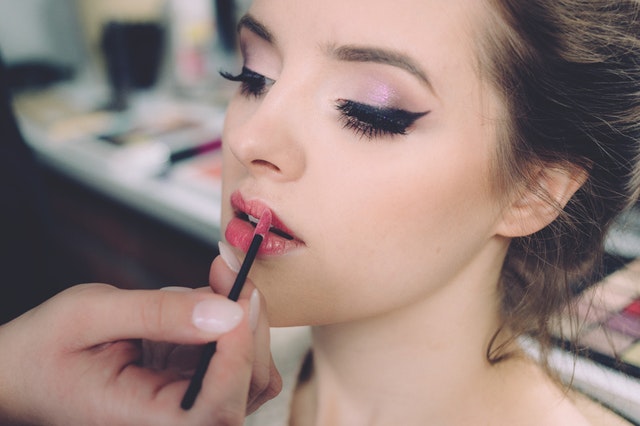Make-up wearing women taken less seriously as strong leaders, study finds

“It is a well-established view amongst economists that good-looking people have a better chance of employment and can earn more than those who are physically less attractive,” writes Eva Sierminska in her article Does it pay to be beautiful?
However one recent study conducted by psychology researchers at Abertay University in Scotland found that the amount of makeup a woman wears can have a negative impact on perceptions of her leadership ability.
Study participants were asked to view a series of images featuring the same woman both without cosmetics and with makeup applied for a “social night out.” Computer software was used to manipulate the faces and the amount of makeup was also manipulated in the face images.
Each participant completed a face perception task where they judged 16 face-pairs, both Caucasian and African ancestry, indicating how much better a leader they felt their chosen face to be compared to the other face.
The study found that both men and women evaluated women more negatively as a leader if the image suggested she was wearing a lot of makeup.
However the study did not look into the thinking that led to these decisions, so further experimenting would also be required to determine whether heavy makeup tends to imply “less competent,” or “too superficial,” or whatever it is that makes someone discount a person’s leadership potential because of their cosmetic choices.
The findings of the study may also be related to the types of faces selected by canvases, and its results might be affected by different contexts (e.g. work environments) and across cultures.
Christopher Watkins, co-author of the study, co-authored a paper a few years ago on attractiveness at different managerial levels of an organization. He found that people were likely to allocate more pay to attractive faces at lower levels of management, such as customer-facing retail jobs. “The effect was much weaker as you went up to higher level jobs,” Watkins said.
However Watkins emphasizes that his intention is not to make any value call on makeup habits.
Writing on whether investment in beauty pays, Soohyung Lee says, “People spend large amounts of money on goods and services to enhance their beauty. Is this enhancement worth pursuing? Research suggests that the expected improvement in beauty from these goods and services is limited. Therefore, despite the large returns from having an attractive appearance, the cost-effectiveness of investment in beauty enhancements is ambiguous.”
Read further articles on workplace discrimination.